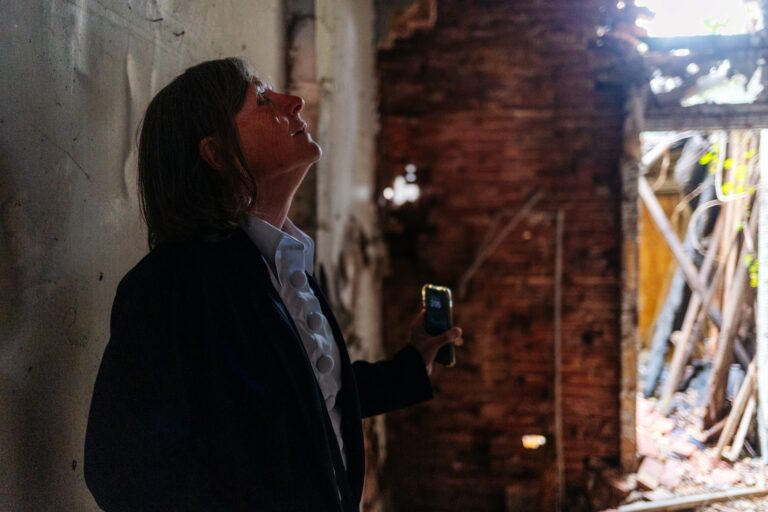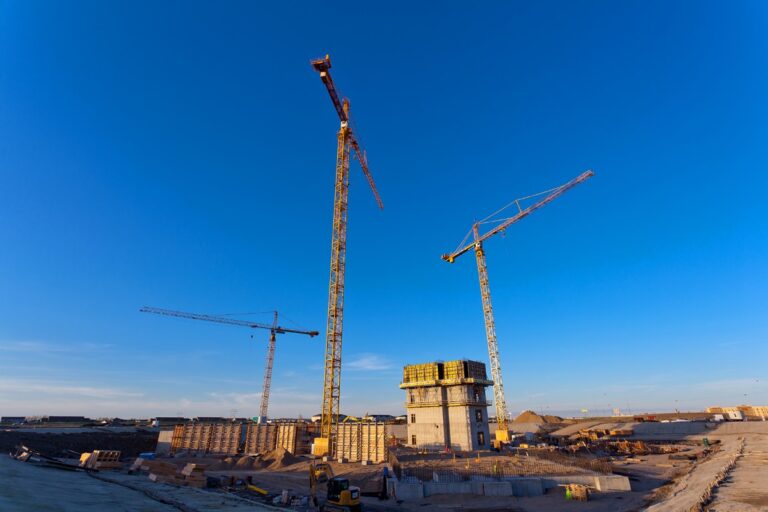Architect Kathleen Lechleiter ’81, ’82 is shaping safe, stable, and dignified housing in Baltimore neighborhoods.
Read MoreCommon Ground
NDSU's GeoWall team gives students hands-on opportunities to practice and apply geotechnical engineering skills.
By Micaela Gerhardt | March 11, 2021
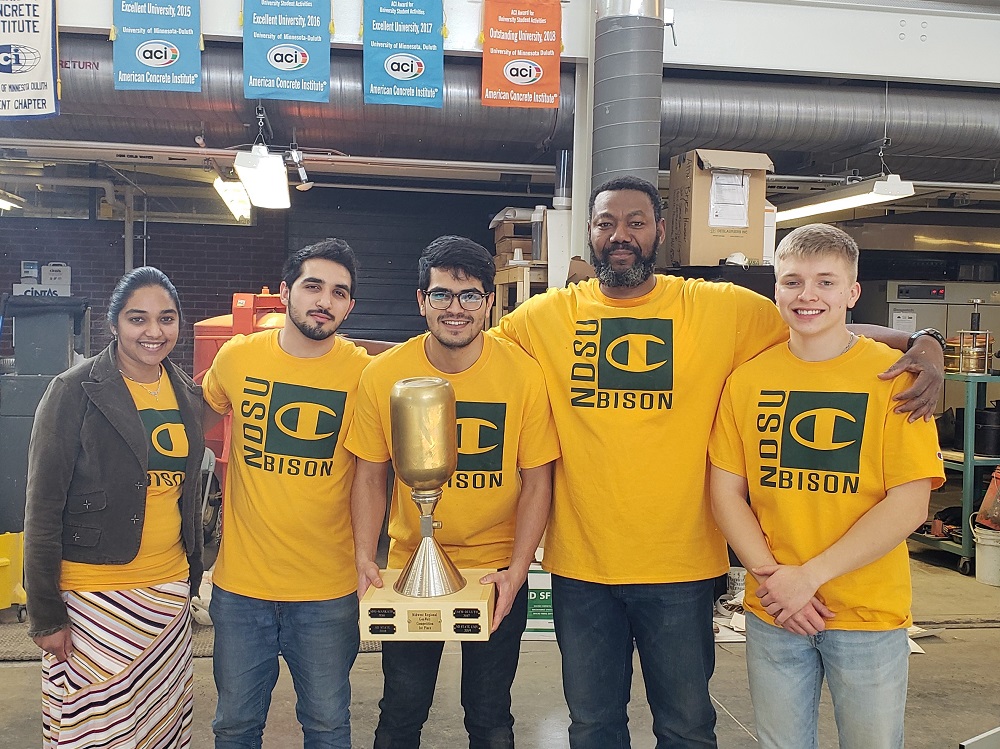
Mechanically Stabilized Earth (MSE) retaining walls are so integrated into the design of the ordinary world that, when working properly, they most likely go unnoticed. But if you begin to look around, you’ll find them hiding everywhere — as natural reinforcements for dikes, bridge abutments, and seawalls, and as temporary structures for highway projects. These MSE retaining walls are an essential part of upholding and stabilizing the framework of our daily lives.
In them, a team of geotechnical engineering students at NDSU has found common ground; they share a curiosity about the way the world operates, a passion for engineering, and a desire to be challenged. Advised by Dr. Beena Ajmera, an assistant professor in the department of Civil and Environmental Engineering, NDSU’s GeoWall team competes regionally and nationally to design and build a model MSE retaining wall able to withhold hundreds of pounds of sand. The structure they create must support the sand even after one wall is replaced with a flimsy piece of kraft paper or the design is inadequate, and the competition is lost.
“From a technical perspective, students are learning design skills, laboratory testing, and engineering software. They get to see the real-world application.”
Dr. Beena Ajmera
Professor of Civil and Environmental Engineering
Dr. Ajmera, who participated in GeoWall competitions as an undergraduate student and served as the faculty advisor for another GeoWall team at California State University, Fullerton, formed NDSU’s team in 2018 at the request of one of the students in the department, Asif Arshid.
“He formed the first team, and they were very ambitious,” Dr. Ajmera said. “They were like, ‘We’re not just going to compete; we want to win. We’re going to win.'”
And they did. In their first regional competition, NDSU’s team placed first overall as well as in the design report category. The gap between first place and second place was 21 points.
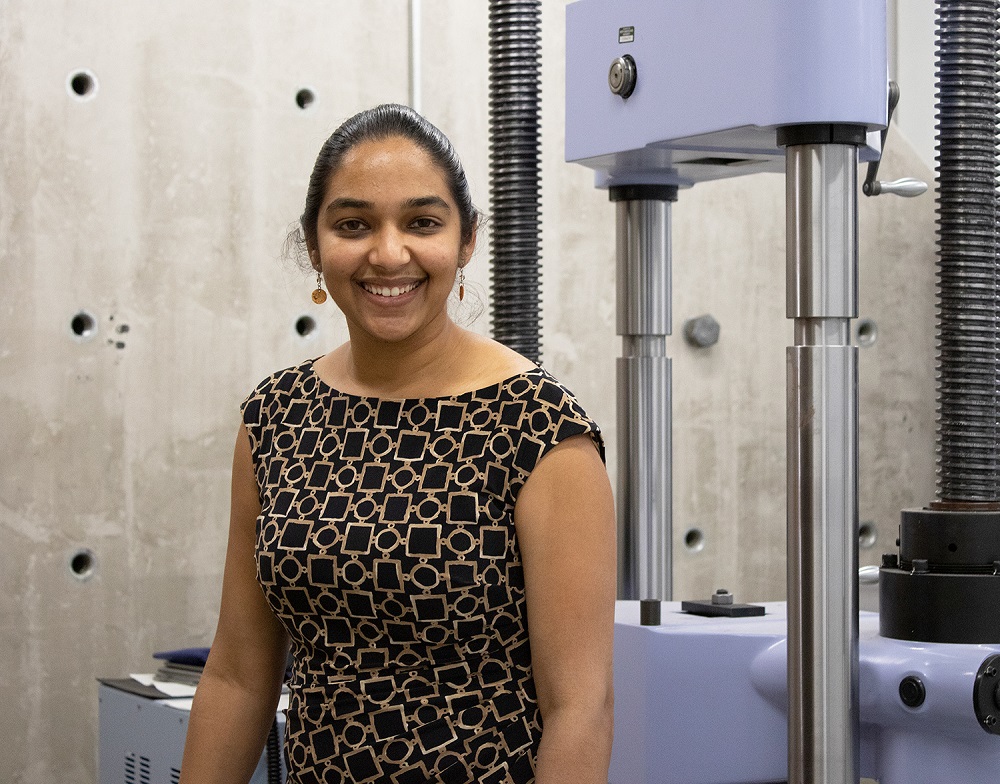
NDSU benefactors have made it possible for the GeoWall team to thrive. Support to programs, like GeoWall, at NDSU inspires and empowers students across campus by offering opportunities for leadership development and professional growth.
“From a technical perspective, students are learning design skills, laboratory testing, and engineering software,” Dr. Ajmera said. “They get to see the real-world application. I can talk until I turn blue but spending an hour in the lab building a model is going to give them more experience.”
Through creating, testing, and presenting their design, the GeoWall students also gain valuable experience practicing soft skills like communication and teamwork, and the benefits extend far beyond the students themselves. The techniques and skills they learn on the team will soon apply to real-world projects and problems; these students will become the engineers who shape and certify the structures the world depends upon.
After finishing his undergraduate degree in civil engineering, Kamal Raj Upadhaya took a job with a construction company. While his co-workers were most excited about building the structures themselves, Kamal was fascinated by what was below them.
“I was interested in the earth materials, the kind of things the structure is held on,” Kamal said. “I was curious to know what was below the structure, and that led me to geotechnical engineering.”
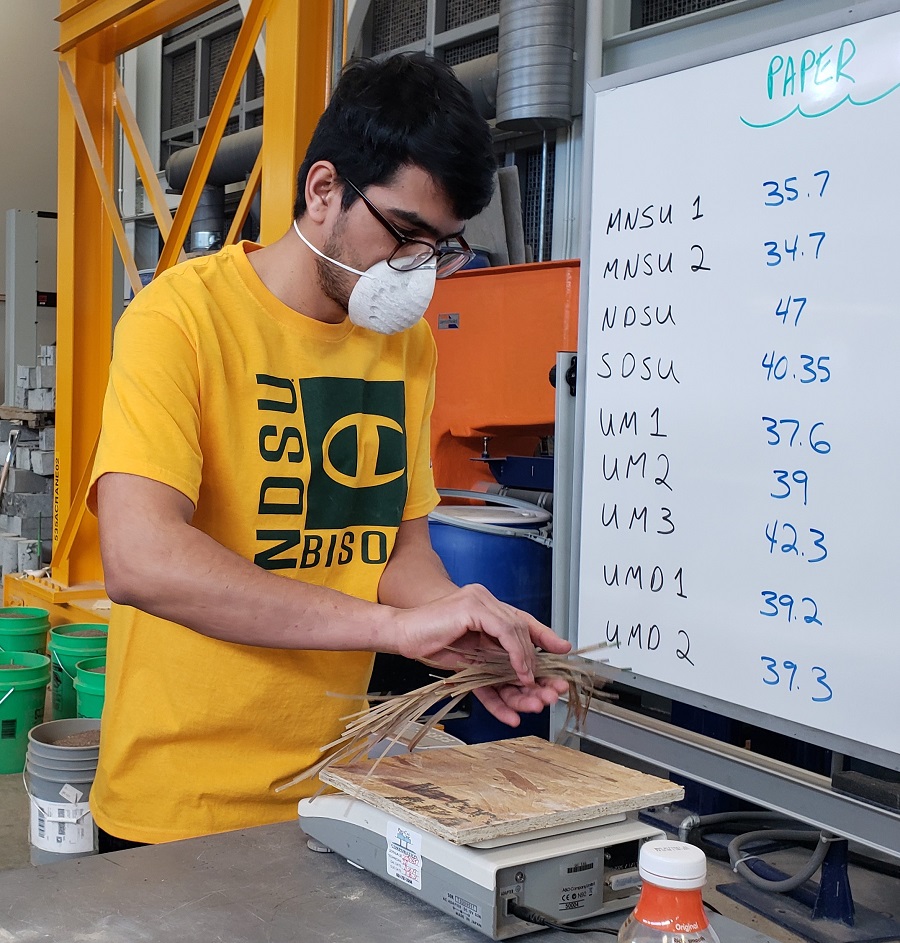
So, he began searching for graduate programs to apply to and looking for professors whose interests matched his own. One person and program in particular stood out to him — Dr. Ajmera and the Civil and Environmental Engineering department at NDSU.
“The faculty members are really great — especially in geotechnical engineering,” Kamal said. “We have renowned faculty and a friendly learning environment. You can learn a lot.”
Kamal served as the GeoWall team captain in 2019. In order to prepare for the regional competition, and hopefully qualify for nationals, Kamal and his teammates practiced frequently, generally meeting in the soil mechanics lab after 5 p.m. when everyone was done with classes. First, they had to develop a design on paper. Then, they tested it repeatedly to see what they could improve in their construction process. How could they speed up their work? (There is a time-limit.) How could they communicate more effectively?
"I was completely nervous. At that moment, there were many people watching us, and I was nervous whether the design we created would be successful or not."
Kamal Raj Upadhaya
Civil Engineering student
They all brought different strengths to the practice; Kamal’s undergraduate degree and work experiences were valuable, and the undergraduate students were able to apply theory and knowledge they had learned in a mechanics class to help solve problems in the design. One student who had recently graduated and participated on the GeoWall team also provided guidance.
Then, in the early, pre-pandemic months of 2020, NDSU’s team placed first at regionals for the second year in a row, making them the only team to win first place at the competition more than once. They were also one of about twenty teams selected from the U.S. and abroad to compete in the national GeoWall competition, held in conjunction with the Geo-Institute’s annual Geotechnical Engineering Conference GeoCongress 2020 Roughly 5,000 geotechnical professionals attend the conference, which highlights student talent, each year.
The stakes were high. Kamal distinctly remembers the moment at the conference when the team applied the designated load of sand to their retaining wall and removed the front wall of their box.
“I was completely nervous,” he said. “At that moment, there were many people watching us, and I was nervous whether the design we created would be successful or not. I mean, if it failed, the kraft paper would not hold the sand inside the box, and the work that we had done — it would be useless. The thing is, it actually passed,” he said, relief still in his voice. “The design passed.”
The team placed third in their national competition debut. The difference between third and second place? One point.
“So close,” Dr. Ajmera said. “But I’m extremely proud of what they accomplished and how dedicated they are.”
Of those four remarkable students who competed in the regional and national competitions in 2020, three had not yet taken the introductory class to geotechnical engineering. One of those students was Tiffany Meeks.
"GeoWall, along with my research, has helped me see that the geotechnical discipline within civil engineering is what I want to go for. I never would have found that without this team…"
Tiffany Meeks
Civil Engineering student
Growing up, Tiffany and her brother loved playing with Legos — there was something about building things, about learning how things worked, that sparked their imaginations. They spent hours piecing together and taking apart the tiny, primary-colored blocks.
She realized her love of math early, and in high school, geometry was her favorite class. But like many young people, she wasn’t quite sure what degree or vocation she wanted to pursue. After taking a career quiz in school, she skimmed through a list of suggested jobs, quickly skipping past the finance-related options (“I’m not a business person who could sit at a desk all day,” she said). She paused when she read “engineer.” After doing a little investigating to learn more about what engineers do, Tiffany found her way from Wadena, Minnesota, to NDSU.
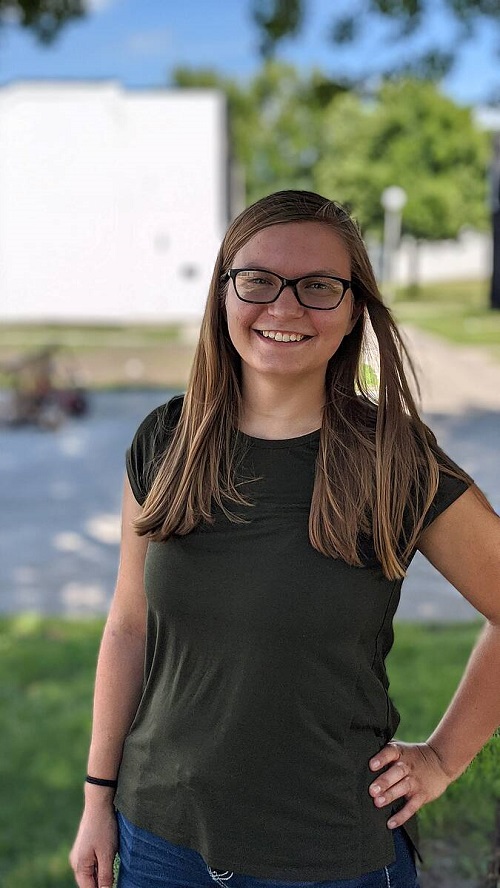
“Our engineering program is very strong,” Tiffany said, “and our students aren’t just doing well in class — they’re thriving in all aspects of their life and as a part of the engineering community.”
Still, transitioning from life in a small town to a bigger city — Fargo — was intimidating.
“The thing that helped make it feel like home was realizing that Fargo is just a big small town,” Tiffany said. “It has that well-knit community feel along with the opportunities of a big city, and I love that.”
One of the opportunities Tiffany quickly seized was the chance to participate in a research project led by Dr. Ajmera, who also nudged her to check out the GeoWall team.
“I’m very glad I did,” Tiffany said, “because it has become, by far, my most favorite organization on campus. We’re very tight-knit, and it’s almost like another little family. There’s something about the people who are attracted to the GeoWall team — we are open to each other, we listen to each other’s ideas and strategies, and we work well together.”
Now, Tiffany and the two other students who had not yet taken the introductory geotechnical engineering course when they joined the team are on track to be geotechnical engineers when they graduate. And, she and a student named Mohammed Mohammed have been named co-captains of the team.
“GeoWall, along with my research, has helped me see that the geotechnical discipline within civil engineering is what I want to go for,” Tiffany said. “It just lines up with what my passion is and what my goals with life are. I never would have found that without this team because geotechnical engineering was not on my radar.”
For Dr. Ajmera, this is the team’s biggest win.
“Watching students who had no idea what geotechnical engineering is find their passion for it, and then become extremely engaged in the profession in the next couple of years, is a transformation that’s really exciting,” she said. “The program is helping put NDSU on the map and showing the quality of the amazing engineers that we are producing as a department and as a college.”
Share This Story
Related Stories
Structures of Connection
Joanna Slominski ’04 wants us to think differently about construction — it’s more than bricks and concrete.
Read More